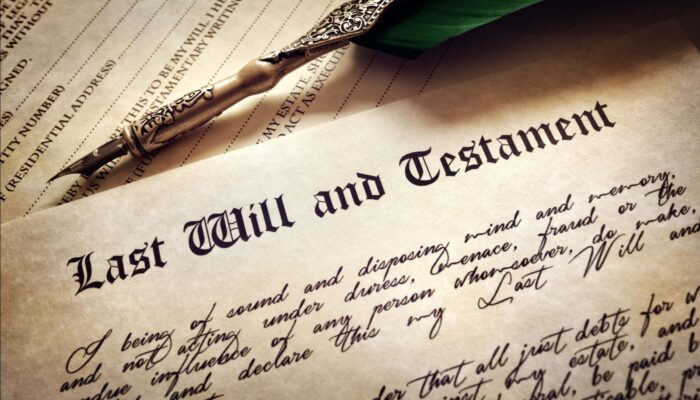Table of Contents
Inheritance, Bankruptcy and Chapter 13
The mysterious interplay between Sections 541 and 1306 of the Bankruptcy Code
In bankruptcy, do inheritances go to the debts, or can the debtor keep them? Does timing matter? What about Chapter 7 vs 13? What happens when someone in a Chapter 13 bankruptcy receives an inheritance after confirmation?
It all depends on the chapter, and when the debtor got the interest. Not the money interest, but the property interest.
Let’s break it down.
Section 1306 versus Section 1327…
First, some definitions:
Section 1306(a) says that the property of the estate includes (1) all assets the debtor acquires after commencement of the case, and (2) all earnings the debtor gets from services performed by the debtor.
Section 1327(b) says that the confirmation of a plan vests all of the property of the estate in the debtor, unless provided differently in the plan or the order confirming the plan.
It seems they say opposite things. The first says it’s all property of the estate, and the second says it’s that of the debtor. This leads to the famous tension between 1306 and 1327, in which there’s a nationwide split.
…but Section 541(a)(5)?
The Code’s Text, Inheritances, and Chapter 7 bankruptcy
Into the picture comes Section 541(a)(5), which says that the property of the estate includes:
“Any interest in property that would have been property of the estate if such interest had been an interest of the debtor on the date of the filing of the petition, and that the debtor acquires or becomes entitled to acquire within 180 days after such date A) by bequest, devise, or inheritance…”
In plain English, this means that bankruptcy estate includes inheritances the debtor has an interest in on the date of filing or within 180 days of the filing date.
What this also means, by extension, is that if the debtor gets an interest in the inheritance after 180 days of filing the petition, it’s not property of the estate. Maybe this 541a5 language can be an escape hatch to the 1306 vs 1327 quandary. Or not. Read on!
Read the bankruptcy inheritance wording: “interest” not received
Notice the words Congress used in Section 541. They say the bankruptcy estate includes if the debtor, on the day of filing, or 180 days after, gets “any interest in property” of a bequest or inheritance. Some people think this means if they get the right to inherit before the magic 180-day mark, but tell the executor Uncle Martin to hold it back until Day 181 that they’re golden. Wrong.

“Any interest” means if the debtor had the right to get the inheritance on day 179, it comes into the bankruptcy estate, regardless of when the money is actually received. For this reason, the only way that the debtor is in the clear, according to Section 541, is if their beloved relative passes away over 181 days after the bankruptcy is filed. The 180-day benchmark is key, particularly in Chapter 7 bankruptcy cases involving inheritances.
How 9th Circuit Courts have Decided Inheritances in Chapter 13 Bankruptcy
Let’s turn now to Chapter 13. As always when there’s a sum of money, regardless how clear (or muddy) the law is written, there will be disputes about it in the courts of law. Let’s see how these have been decided in the Ninth Circuit.
Inheritance Before Chapter 13 Bankruptcy Confirmation
In 2014, the Bankruptcy Appellate Panel (BAP) of the Ninth Circuit examined such a case. The debtors, Robert and Kathy Dale, filed Chapter 13 bankruptcy on Halloween in 2011. The plan wasn’t confirmed, but the following summer — more than 180 days later — Robert’s mom died. Robert stood to inherit about $30,000, and a few months later, informed the bankruptcy court of the inheritance. The Chapter 13 trustee wanted the money, and the bankruptcy court held that under Section 1306, the money was property of the estate. The Dales then appealed.
The 9th Circuit BAP examined whether the inheritance fell under 541 and was out of the bankruptcy estate, or because the case was never confirmed, if 1306 kept it in. in re Dale, 505 BR 8 (BAP 9th Cir, 2014). The debtors argued that it makes no sense to consider property of the ‘kinds’ specified in § 541 without considering its exclusions as well, including the 180-day postpetition limit on inclusion of inheritances.
However, the BAP didn’t see it that way. It followed the reasoning of the Fourth Circuit which wrote:
“Congress has harmonized [§§ 541(a)(5) and 1306(a)] for us. With Section 541, Congress established a general definition for bankruptcy estates. With Section 1306, it then expanded on that definition specifically for purposes of Chapter 13 cases. Thus, “Section 1306 broadens the definition of property of the estate for chapter 13 purposes to include all property acquired and all earnings from services performed by the debtor after the commencement of the case.
“The statutes’ plain language manifests Congress’s intent to expand the estate for Chapter 13 purposes by capturing the types, or “kind,” of property described in Section 541 (such as bequests, devises, and inheritances), but not the 180-day temporal restriction. 11 U.S.C. § 1306(a). This is because “[t]he kind of property is a distinct concept from the time at which the debtor’s interest in the property was acquired.” And on its face, Section 1306(a) incorporates only the kind of property described in Section 541 into its expanded temporal framework.”
Carroll v. Logan, 735 F.3d 147, 150 (4th Cir.2013) (internal cites omitted).
The Dale BAP case, then, isn’t very helpful, as it shoves the inheritance back into the estate by 1306, stripping it from the clutches of 541a5. In re Dale, 505 B.R. 8, 13 (2014): “Ultimately, we agree with the analysis of the Fourth Circuit in Carroll v. Logan, and we conclude that the bankruptcy court did not err in determining that an inheritance received by chapter 13 debtors more than 180 days following the petition date but before confirmation of a chapter 13 plan and before the case is closed, dismissed or converted is property of the debtors’ bankruptcy estate.”
But wait, there’s more!

Inheritance After Chapter 13 Bankruptcy Confirmation
It seems clear that at least locally, if the inheritance is before confirmation, the 180 days of 541 doesn’t matter. But what about postconfirmation!
The answer is back in Dale. Wait, the preconfirmation case? Yes, that’s the one.
“The Fourth Circuit’s decision in Carroll v. Logan is consistent with the great weight of authority interpreting the application of § 1306(a)(1) with respect to postpetition inheritances in chapter 13, explicitly considering the temporal exclusion included in § 541(a)(5).” Dale at 12, before making a passing reference in approval of Judge Pappas taking a postconfirmation inheritance away in In re Jackson, 403 BR 95 (Bankr Ct, ID 2009).
Then, citing the respected Judge Lundin’s treatise, it wrote: “In a Chapter 13 case, § 1306(a)(1) would appear to extend the 180-day period in § 541(a)(5) to include the period between commencement of the chapter 13 case and the time the case is closed, dismissed or converted.”
Which takes us back to Section 1306, and how it relates to Section 1327.
Look at In re Jones, 420 BR 506 (9th Cir BAP, 2009), affirmed by the Ninth Circuit Court of Appeals in 657 F3d 921 (9th Cir, 2011).
There, the appellate court said, “We agree with the bankruptcy court’s interpretation and adopt the estate termination approach for several reasons. Under the estate termination approach, the vesting of all estate property in the debtor at confirmation (unless the plan or confirmation order provides otherwise)…” Id. at 514-515. And of course, our form plan in the CDCA says otherwise (a cdcbaa committee revisited this plan language after Black v Leavitt and decided to, pardon the pun, leave it).
(even if it did revest, the BAP later wrote: “We publish to clarify that a revesting provision in a confirmed chapter 13 plan does not prevent modification of the plan to capture increases in the debtor’s postconfirmation compensation.” In re Berkley, 613 BR 547, 549 (9th Cir BAP 2020).
In short, despite the language of Section 541a5, it appears at least that in the Fourth and Ninth Circuits that Section 1306 carries the day. Then, at least here in the 9th Circuit and other jurisdictions which adopt the estate termination approach, Section 1327 can swoop in.




